If you’ve ever had a pet parrot, you know that they can be very intelligent creatures. They understand what their owners say to them, and can even learn to do tricks on command.
But do you know that parrots understand what they say when they’re talking?

Yes, parrots do know what they are saying. From my own experience, I can tell you that my African grey parrot can interact with me as part of a conversation.
I’ve also seen in many videos where people their homes with pet parrots and how they communicate very well with them.
We know that parrots understand what they say because studies of parrot intelligence have been conducted.
For example, there is a study where a parrot has learned to do math by asking questions such as “what’s 1+1?” He was able to answer that one plus one is two. There are also several parrots that have displayed the ability to count, do basic addition and subtraction, and perform other tasks that require intelligence.
It seems like parrots are definitely on their way to having “conversations” with us because they understand what they say.
Maybe in the future, they will learn to speak our languages fluently.
Until then, just enjoy their playful talking and let them have all the fun!
Can Parrots Understand Human Language?
“I love you!” a Blue and Gold Macaw squawks. Is it trying to tell his owner he likes him or is he merely responding out of instinct without any sort of comprehension of what is being said?
The answer, as discovered by some studies, is YES. Some types of parrots can understand humans, at least partially.
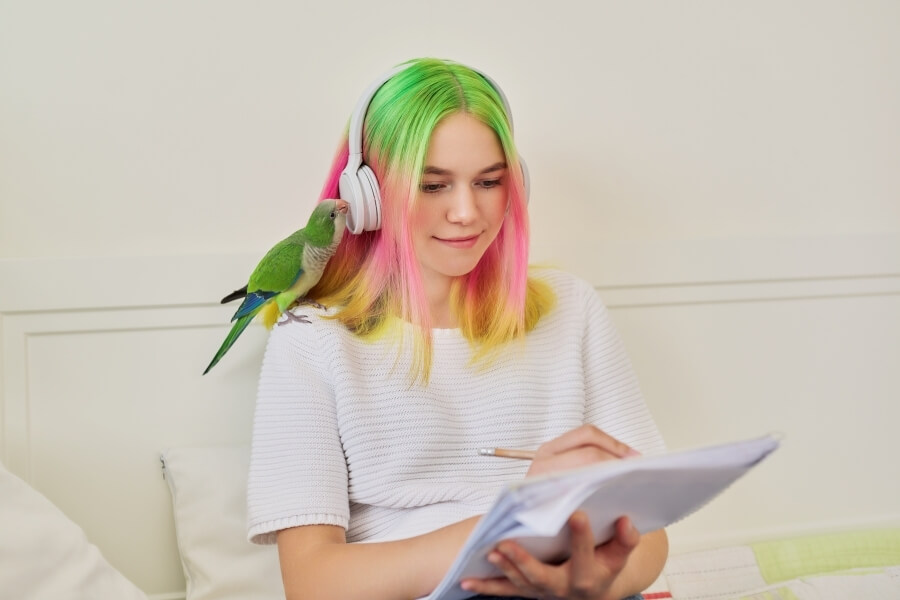
What exactly has science found out about how far these birds’ understanding really goes?
The ability to understand human speech is particularly impressive as it requires abstract representation. Parrots are able to translate spoken words into their own body language, thus creating an entirely new code. In this process, they also learn to alter the tone of what they say to suit a different situation.
In one experiment, parrots were taught how to approach specific humans based on particular words used by their owners. For instance, if a human trainer wanted a parrot perched on his arm, he would say “up,” and the bird would jump up onto his arm. However, if a trainer said “jump,” the parrot would climb onto a perch instead.
Even when told not to do something with certain words but still using those same keywords in an attempt at doing it anyway, it was found that parrots did so without actually understanding why or what they were doing wrong. These results suggest that even though parrots learn to use certain words and phrases, they don’t necessarily understand the meaning behind them.
Some of the parrots also had a fondness for mimicking some words like “hello” or “hi.” Another way these animals show understanding of language is by not simply copying sounds but also putting together appropriate phrases.
The macaws, in particular, tend to pick up on small details in conversations and repeat them back later with different people.
So, it’s safe to say that most parrots can comprehend humans at least partially.
Do Parrots Talk Back To Their Owners?
Can you imagine that pet parrots might actually understand what they say? And even more impressively, can they learn to respond when you talk back to them?
Here’s another example of parrots talking back to their owners.
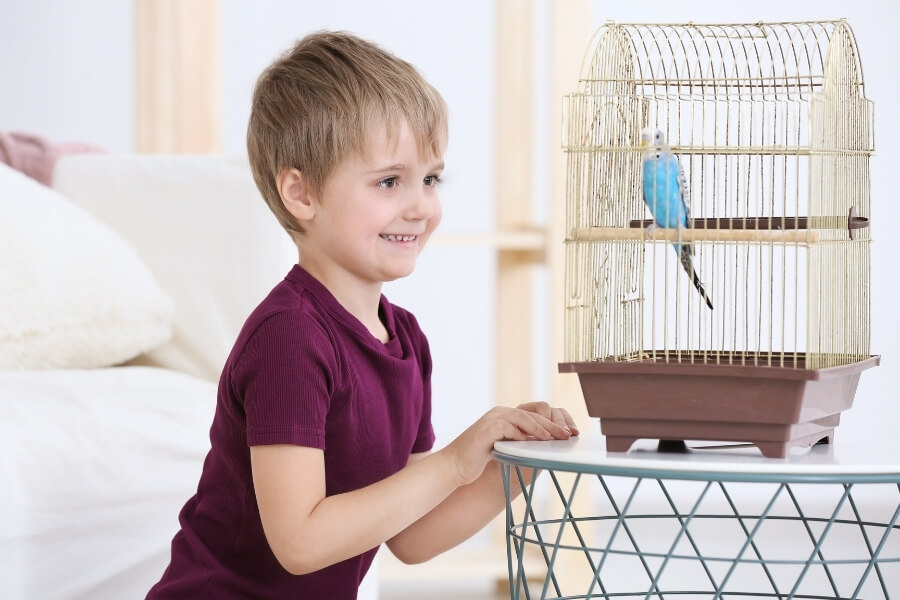
One amazon parrot who lived with two teenage brothers was always exhorted to ‘stop it!’ whenever he started biting his nails. One day, the elder brother said the phrase when the bird wasn’t biting his nails, and the Amazon indignantly replied ‘Don’t stop it!’
The parrot’s owner then tried to silence the bird with a sharp ‘Don’t say that!’ but the Amazon, who was clearly fed up with being bossed around by his teenage owner, replied just as firmly ‘I’m sorry!’
I guess your mouth now is hanging open as wide as mine. How does he know how to respond like that?
It’s true that parrots may not only understand what they say, but depending on their training and ability to communicate back, some parrots can truly talk back to humans.
Why Do Parrots Talk Like Humans?
Parrots are remarkable because they imitate human voices. They can even copy the distinctive pitch of our voices, something that even chimpanzees can’t manage.
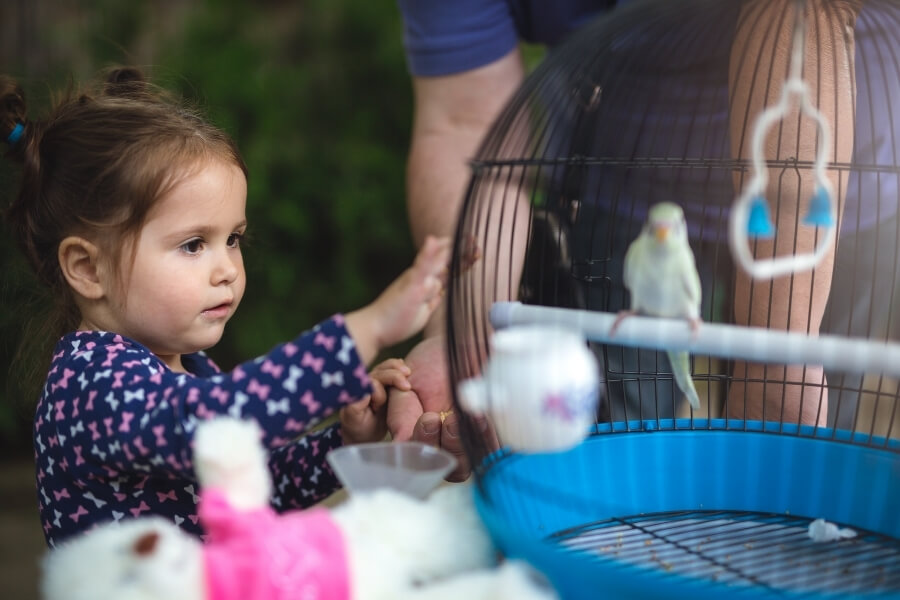
Like human toddlers, parrots go through a process of language learning. They start from babbling and then progress to really understanding what they’re saying.
Of course, this doesn’t mean that parrots can speak our language fluently or anything close to it. What it does mean is that intelligent creatures like parrots have the ability to learn a new language – in this case, human language – and evolve it into something that works for them.
Do Parrots Have Vocal Cords?
Unlike humans, parrots don’t have vocal cords. Instead, the sound of their voice comes from air being forced through a special organ at the base of their trachea called a syrinx.
It is something that most people just took for granted and didn’t know.
Not sure what it is? Let me explain.
Instead of a larynx, birds have a syrinx. The wall of the syrinx has two thin membranes. Those membranes vibrate and make sounds. The sound that the parrot makes depends on what family the parrot comes from as well as its genes.
When we make sound, it is made by blowing air across the opening of the trachea. Different sounds are made by changing the size and shape of the opening.
So talking parrots and some of the crows are really whistling in different ways. African Grey Parrots, for example, make good talkers because their trachea is stronger than other parrots.
Cockatiels, on the other hand, have soft tracheas making it more difficult for them to speak words. Despite cockatiels are also known as good talkers, they have a greater vocabulary than other types of parrots.
What Types Of Parrots Expect Can Mimic Human Speech?
If you are looking for an animal companion who you can talk to, who will keep you company and give you love without demanding a lot of attention in return, a parrot may be a perfect choice.
Parrots are considered one of the easiest birds to train because they quickly form a strong bond with their owners
However, NOT all parrots are equally gifted.
African Grey Parrots
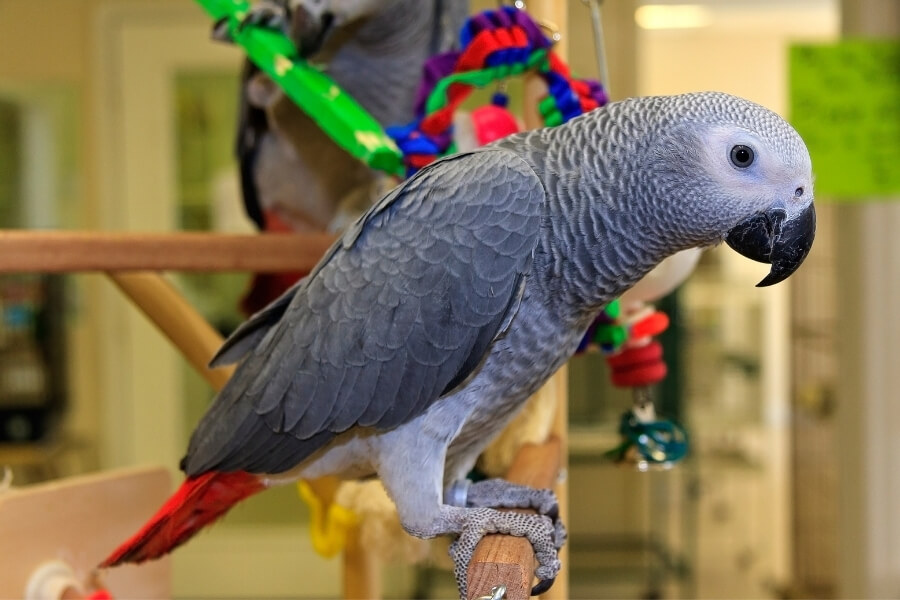
The African grey parrots are one of the most intelligent species of all parrots.
It is said to be on the same intellectual level as a five-year-old child.
The African grey parrot can even learn how to speak some words and phrases in another language.
This species can imitate human speech even in a noisy environment.
They can be trained to talk almost guaranteed.
Amazon Parrots
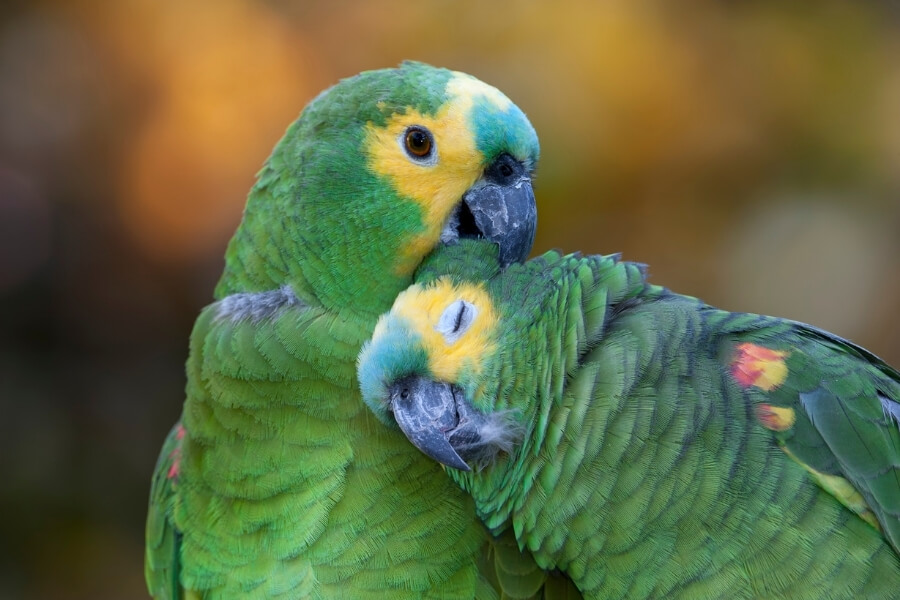
The ability of Amazon parrots to mimic human speech doesn’t come easily. But if you are willing to be patient, your bird will learn to talk in a very clear voice. It is best if the person talking spends time every day training the bird with at least 20 minutes of spoken sentence phrases. The parrot can typically start talking back in 5-6 weeks!
Macaws
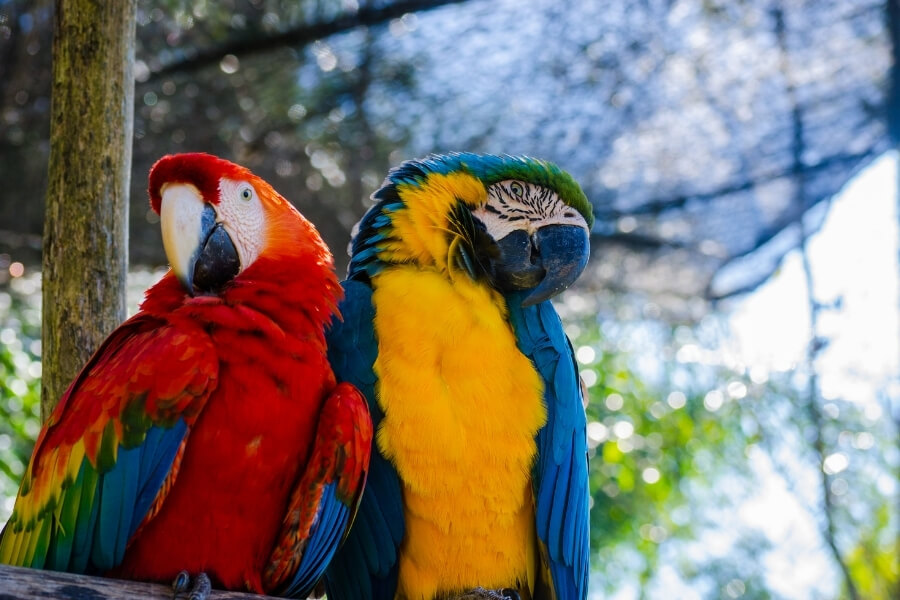
Macaws are often considered to be loud and uncooperative but they are also excellent at imitating other animals. Because of this, macaws are often used in the entertainment industry, where they take on roles such as Daisy Duck in Disney’s Quack Pack.
Macaw’s ability to mimic gives them the opportunity to do many things with their skill. They can be actors, or comedians or even create music. These birds can imitate everything from your favorite actor’s voice to a dog barking. One thing is for sure; these parrots will never lack something interesting to say!
Cockatoos
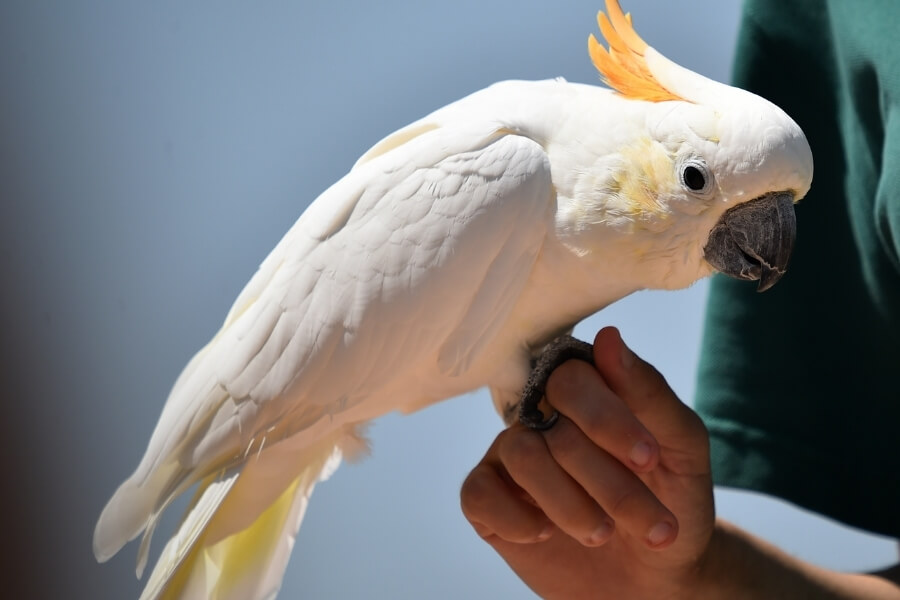
Cockatoos are incredibly affectionate birds that love to cuddle up with their owners. However, they do not always like to repeat words or phrases spoken by others. And it’s hard for them to learn new sounds, especially if there is more than one bird in the house. But once your bird learns how to talk, you’ll find yourself rewarded by its lovable personality and good humor!
Indian Ringneck Parrots
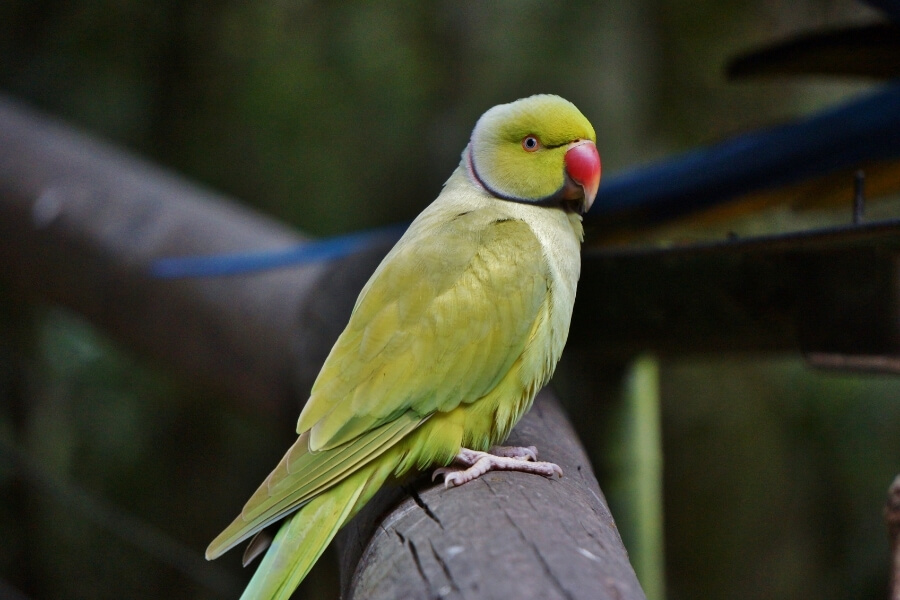
The Indian ringneck parrots are a very popular species because they can learn to mimic human speech. These birds are quick learners and will often pick up on the sounds that you want them to reproduce. However, these birds do not like repetitive sounds and phrases and will go silent when bored of repeating the same words again and again.
Ringnecks parrots’ voices are one of the most appealing in pet birds, with a comically high-pitched tone. They usually begin talking between 8 months and 1 year old, and they’re quick learners, especially if their humans pay them attention regularly.
Senegal Parrot
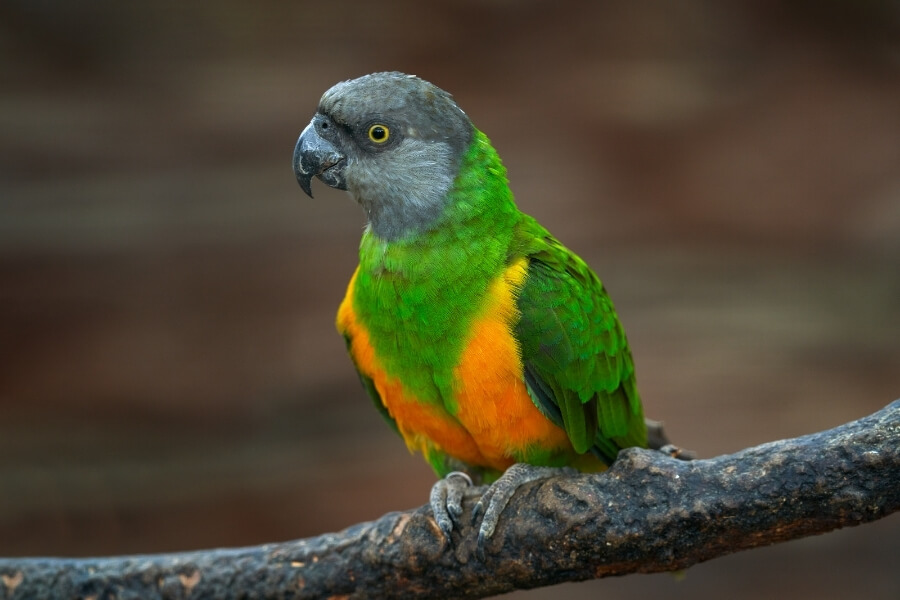
The Senegal parrot is a very affectionate bird, but it does have an attitude! For this reason, it can be difficult for your little feathered friend to learn how to speak in a way that mimics humans. If you do get your Senegal talking, however, expect his or her personality to shine through! The words may not always come out perfectly right but this bird’s voice is sure to make up for any mistakes!
Do Parrots Know Their Names?
It is unlikely they will learn to say their name if they are not exposed to it often. If the bird is frequently called by its name it will at least be able to recognize it, most likely they will pick up on saying their own name as well. This takes several months of exposure though so patience is necessary!
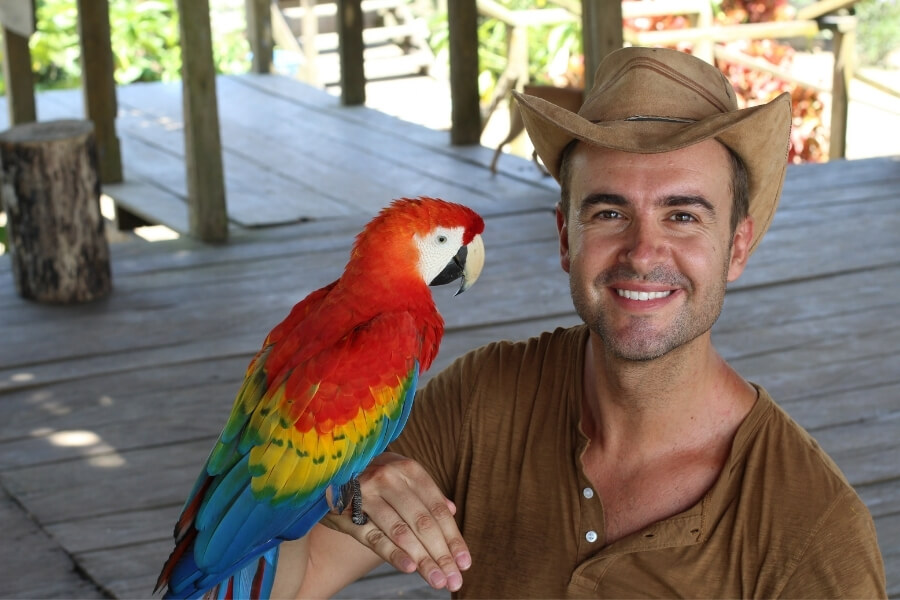
Parrots are intelligent creatures and they do have an excellent memory so yes they would most likely remember their names being said over time but only if the trainer says the name once or twice a week for many weeks in a row consistently.
I am not big on keeping track of which bird is which, but it does seem that some birds are more house-trained than others. In my experience, the green-winged macaws and Senegal parrots seem to be the most likely to learn their name from humans. I find that the ringneck parrots are a little less likely to pick up on any words or phrases from people.
Can A Parrot Recognize Its Owner?
Yes, parrots can recognize their owners.
A blue-fronted Amazon parrot in Oregon, USA has demonstrated a remarkable ability to recognize its owner, after being separated from him for 5 years. Mr. Rogers had lost his beloved bird Jasper in the wild but was surprised when Jasper appeared at his house one day and refused to leave.
Jasper used to fly outside of Rogers’ house every night. In 2009 however, he stopped doing it and eventually disappeared without a trace. Even though people kept telling Mr. Rogers that Jasper probably flew away or died, he never gave up hope and continued looking for his bird every day during morning walks.
“It’s a miracle”, said the owner who has found his beloved parrot after 5 years. “I always believed I’d see him again and I’m so happy that I was right!” He said.
The owner noticed how excited his pet got when he saw him after five years. “He recognized me! He’s still the same handsome bird I’ve raised” – Mr. Rogers said, visibly moved by the reunion.
Conclusion:
Parrots are typically known for their ability to mimic sounds, but some parrot species have the intelligence and capability of understanding human language.
If you’ve ever wondered why your pet bird talks in a particular way or if he understands what you say to them, this blog post is worth reading. You’ll learn about different types of parrots who can talk like humans as well as how smart these intelligent animals really are!
If you want help with understanding more about your animal companion’s behavior or needs, I would be happy to offer any guidance you need.
